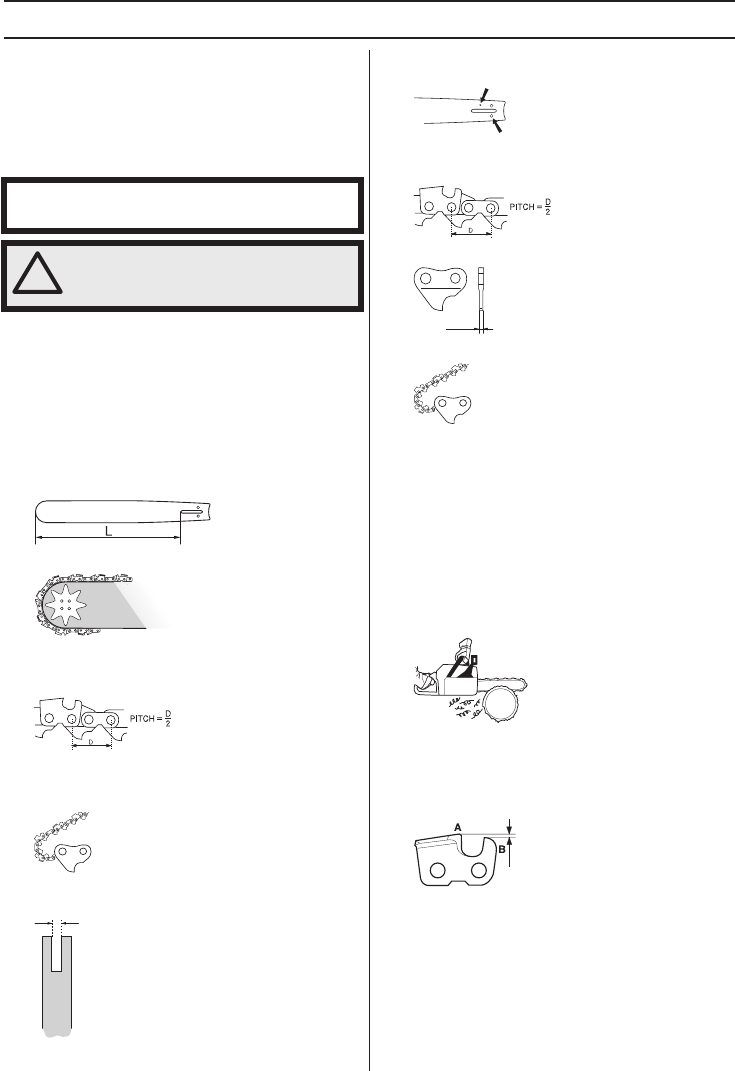
GENERAL SAFETY PRECAUTIONS
English – 11
Bar
The smaller the tip radius the lower the chance of
kickback.
Chain
A chain is made up of a number of links, which are
available in standard and low-kickback versions.
Some terms that describe the bar and chain
To maintain the safety features of the cutting equipment,
you should replace a worn or damaged bar or chain with
a bar and chain combinations recommended by
Husqvarna. See instructions under the heading Technical
Data for a list of replacement bar and chain combinations
we recommend.
Bar
• Length (inches/cm)
• Number of teeth on bar tip sprocket (T).
• Chain pitch (inches). The spacing between the drive
links of the chain must match the spacing of the teeth
on the bar tip sprocket and drive sprocket.
• Number of drive links. The number of drive links is
deter
mined by the length of the bar, the chain pitch
and the number of teeth on the bar tip sprocket.
• Bar groove width (inches/mm). The groove in the bar
m
ust match the width of the chain drive links.
• Chain oil hole and hole for chain tensioner. The bar
m
ust be matched to the chain saw design.
Chain
• Chain pitch (inches)
• Drive link width (mm/inches)
• Number of drive links.
Sharpening your chain and adjusting
depth gauge setting
General information on sharpening cutting teeth
• Never use a blunt chain. When the chain is blunt you
have to exert more pressure to force the bar through
the wood and the chips will be very small. If the chain
is very blunt it will produce wood powder and no chips
or shavings.
• A sharp chain eats its way through the wood and
produces long, thic
k chips or shavings.
• The cutting part of the chain is called the cutter and
consists of a cutting tooth (A) and the depth gauge
(B).
The cutters cutting depth is determined by the
difference in height between the two (depth gauge
setting).
IMPORTANT! No saw chain design eliminates the
danger of kickback.
!
WARNING! Any contact with a rotating
saw chain can cause extremely serious
injuries.


















